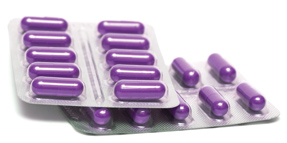HIV prophylaxis and new weight loss drug approved
This regulatory update covers label changes for dalfampridine and approvals for the first generic versions of montelukast sodium for asthma.
Recalls, warnings and label changes
Changes to the label for dalfampridine (Ampyra) based on post-market adverse event reports of seizures in patients with multiple sclerosis. The drug is contraindicated in patients with a history of seizures or with moderate to severe renal impairment (creatinine clearance ≤50 mL/min). Kidney function should be checked before starting therapy and monitored at least annually. Additionally, patients who miss a dose should not take extra doses because it can increase seizure risk.

A recall of some Alere Triage diagnostic tests, including CardioProfiler Panel PN 97100CP, Cardiac Panel PN 97000HS, Profiler SOB Panel PN 97300, BNP PN 98000XR, and D-dimer PN 98100. The test kits may have significantly lower precision than expected, which could result in increased frequency of false-positive or false-negative results.
A recall of certain lots of Shiley reusable cannulae, cuffed adult tracheostomy tubes, size 8, due to reports of volume leakage and/or disconnection between the inner and outer cannulae.
A recall of the CareFusion Alaris PC Unit, model 8015, because a component on the PC unit power supply board is causing an error code to occur. The error code can cause a delay in therapy or prohibit changes in infusion dosing, which may result in serious injury and/or death.
A recall of certain models of Respironics' Trilogy ventilators due to defective power supply components that may cause unexpected cessation of function, thereby stopping ventilation of the patient.
A recall of the B. Braun Infusomat Space Infusion System, due to the potential for breakage of the anti-free flow clip catch located inside the infusion pump door. Breakage may occur when the catch is inserted improperly into the pump and the pump door is forced closed. Free flow can cause life-threatening effects and injuries.
A recall of the Arrow International, Inc. multi-lumen venous catheterization set because the device's labeling erroneously states that it “contains no medication.” The device contains chlorhexidine and silver sulfadiazine and so should carry a warning that it may cause serious adverse health consequences, including death, if used in a patient who is allergic to either chlorhexidine or silver sulfadiazine.
A recall of the GE Healthcare Aestiva/5 7900 ventilator due to potential for two vaporizers to deliver an agent at the same time, which could result in overdose.
Approvals
The first generic versions of montelukast sodium (Singulair) for use in adults and children to control symptoms of asthma symptoms and indoor and outdoor allergies. Approval was granted to generic manufacturers for tablet, chewable tablet and oral granule forms of the drug.
Aclidinium bromide (Tudorza Pressair) for the long-term maintenance treatment of bronchospasm associated with chronic obstructive pulmonary disease. The dry powder inhaler, used twice daily, is a long-acting antimuscarinic agent and may cause serious side effects, including paradoxical bronchospasm, acute narrow-angle glaucoma or new or worsened urinary retention.
A new indication for emtricitabine/tenofovir disoproxil fumarate (Truvada) to reduce the risk of HIV infection in uninfected individuals who are at high risk. Taken daily, it is used for pre-exposure prophylaxis (PrEP) in combination with safer sex practices. The drug was previously approved for the treatment of HIV-infected adults and children 12 years or older in combination with other antiretroviral agents. The PrEP indication is only for individuals who are confirmed to be HIV-negative prior to prescribing the drug and at least every three months during use. It is contraindicated for PrEP in individuals with unknown or positive HIV status.
Phentermine and topiramate extended-release (Qsymia) as an addition to a reduced-calorie diet and exercise for chronic weight management. It is approved for adults with a body mass index (BMI) of 30 or greater or adults with a BMI of 27 or greater who have at least one weight-related condition. The drug must not be used during pregnancy or in patients with glaucoma or hyperthyroidism. The recommended daily dose contains 7.5 mg of phentermine and 46 mg of topiramate extended-release, but a higher dose (15 mg phentermine and 92 mg of topiramate extended-release) is available for select patients. It can increase heart rate, so regular monitoring of heart rate is recommended for all patients, especially when starting or increasing the dose.
A combination of sodium picosulfate, magnesium oxide and citric acid (Prepopik) to help cleanse the colon before colonoscopy. One dose consists of two packets of powder, each dissolved in cold water. Patients should take one packet the night before colonoscopy and one the morning of colonoscopy (split-dose regimen). If this is not possible, patients may take it in the afternoon and evening before the colonoscopy (day-before regimen). The most common side effects include nausea, headache and vomiting. Two clinical studies with about 1,200 adult patients found the split-dose regimen superior to a control preparation in cleansing the colon.
Everolimus (Afinitor) to treat certain postmenopausal women with advanced hormone-receptor positive, HER2-negative breast cancer, in combination with exemestane (Aromasin). It is intended for women with recurrence or progression after treatment with letrozole (Femara) or anastrozole (Arimidex). In a clinical study of 700 women, the drug showed a 4.6-month improvement in the median time to disease progression or death compared to placebo.
Carfilzomib (Kyprolis) to treat patients with multiple myeloma who have received at least two prior therapies, including treatment with bortezomib (Velcade) and an immunomodulatory therapy. In a study of more than 200 patients, overall response rate was 23%. The drug is being approved under the FDA's accelerated approval program.
Miscellaneous
The FDA approved a risk evaluation and mitigation strategy (REMS) for extended-release (ER) and long-acting (LA) opioid medications. The REMS introduces new safety measures to reduce risks and improve safe use of ER/LA opioids while continuing to provide access to these medications for patients in pain. The central component of the REMS is an education program for prescribers that will include drug information on ER/LA opioid analgesics and advice on assessing patients for treatment, initiating therapy, counseling patients and caregivers about safe use, managing therapy, monitoring patients, modifying dosing and discontinuing use. Additionally, prescribers will learn how to recognize evidence of and potential for opioid misuse, abuse and addiction. The ER/LA opioid analgesics REMS will also include a patient counseling document for prescribers to give to patients.




